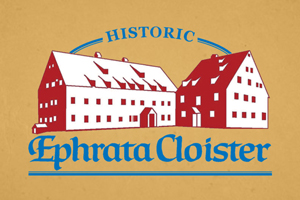The married members of the Historic Ephrata Cloister have always played an important role in the community’s success. These families, known as Householders, lived in the neighborhood on their own property, practiced a range of trades, and joined the celibate Brothers and Sisters in worship. Today, generations of the earliest families live across the nation.
Householders have a longer history with the community than the celibate Brothers and Sisters. Even before Conrad Beissel arrived at the site of Ephrata in 1732, he had a following of families. These members provided economic support to the community and received assistance from the celibate members. At the peak of the community in the mid-18th century, the married congregation outnumbered the celibate order with about 200 family members. After the death of the last celibate member in 1813, the remaining Householders inherited and maintained Ephrata’s buildings, grounds, and artifacts. They formed the German Seventh Day Baptist Church at Ephrata and continued to live and worship at the historic site until 1934.
During the eighteenth-century, nearly 140 different families associated with the community. Keeping track of genealogy for all these families is a daunting task, and the site’s limited resources remain focused on the first-generation members and their most immediate families who made direct contributions during the community’s founding century. The Historic Ephrata Cloister holds few genealogical records extending beyond the eighteenth-century, and many records remain incomplete. Genealogical materials relating to subsequent generations are extremely limited in scope. Individuals are encouraged to begin their research at larger local libraries including The Historical Society of the Cocalico Valley, The Lancaster Mennonite Historical Society, and LancasterHistory.
To learn if your family is among those with ancestry connected to the historic site, click here to view the list of people currently recognized as members of the Ephrata Cloister and the subsequent Ephrata Congregation of the German Seventh Day Baptist Church (1732—1934. Below are family information sheets for some of the Householder families.
On August 1, 2022 we held our first Householder Homecoming. This program, “‘Our Brethren Who Have Their Own Farms:’ The Householders of Ephrata,” highlighted the role of the Householders in early Ephrata and explored the relationship between the family members and their better known celibate counterparts. A recording of the program can be viewed below.



